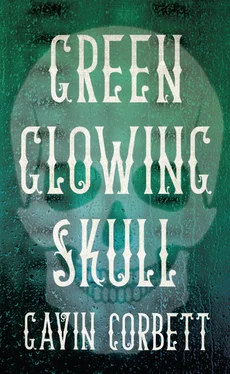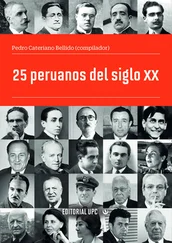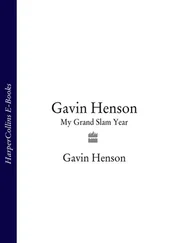After his breakfast, off-premises, he went again to the library. He liked to sit here before it got too late in the morning because it was east facing and it gave him the banal sense that the light that streamed in was the distilled first light of an American day. One of the oldest club members was also taking in the warming light. This man was about Denny’s age although unlike Denny he looked every day of his years. He was like a crumpled sheath that had lost its skeleton — so folded and formless that even his eyes were buried. Rickard began to amuse himself by putting the thought that the man was merely the sloughing of a man together with a nightmare about the internet he’d had during the night. In his nightmare, he’d had to come up with an ‘avatar’ for a false version of himself. The idea that this thing would be a homunculus, a hobgoblin, a sprite or a celebrated piper seemed terrifying in his sleep. But seeing him sitting here now in the library, his legs crossed, thigh over thigh, the effeminate way, made him laugh. He laughed thinking of those legs running amok in that great unmanageable wilderness, dancing across all of history and rumour and oceanography.
‘We are in the company of a genius, you know,’ he said to the homunculus in a slightly bullying tone that was unintentional.
‘Oh?’
‘Oh yes, don’t you know?’
‘Know what or whom?’
‘Denny Kennedy-Logan, the great Irish tenor and club member.’
‘Now why do you tell me this?’ said the homunculus, sitting forward as his eyes extruded from their hoods.
‘Led by whim again.’
‘Whim has little to do with it,’ said the homunculus. ‘We are never led only by whim.’
Soon after, Rickard joined the New York Public Library system. His ostensible reason for doing so was that the clubhouse library was too small, but he recognised also a need to move closer to home. (In the simple visual display by which this thought was represented to him, the move to home was a bubble encompassing his New York experiences, interests and contacts that expanded [even if the contents at its centre did not] so that it combined with and expanded that past bubble of his life.) This was confirmed to him on his first visit to the main library branch on Fifth Avenue when he ordered up from stacks the Dublin telephone directory. The effect of what happened next took him by surprise. He was amazed at the slimness of the volume he was given; it had been a long time since he beheld any edition of his home city and county’s phone book. Its smallness, and the smallness it seemed to contain, only emphasised the immensity and grandeur of the reading room he was in, and the great windows, gangways of sunbeam, high ceiling and burning silence of the place increased his pity for and embarrassment at the place he was from. He went out to the street, and the roar and soar of Manhattan had never felt so new.
A short walk from the library Rickard found exactly what he was looking for — a telephone booth, open air, just like in the movies. He dialled Toni’s work number. It was 1.18 in New York City, 6.18 in Dublin. For too long he had waited for chance to happen and now he was going to do something about it. 6.18 was pushing things, although his father had told him that he believed Toni had reached such a status in work that she never, in fact, clocked out. Asked if it was possible that not clocking out meant simply that Toni carried her work home with her, his father hesitated, saying then that once or twice at around eight in the evening he had seen from the slip road all the lights on in Toni’s office. Picturing those lights now as violent slashes in the permanent grey that enshrouded the addressless place where Toni’s office was, Rickard considered how necessary it was that he got through to Toni at work rather than at home, and that what he would say to her was less important than what she would hear.
He closed his eyes and allowed the soundscape to disturb his emotions. There was nowhere in the world that sounded so like itself as New York City — all hollering horns and saxophonous sirens. He plugged his right ear with his finger and listened through the earpiece as mediated by the mouthpiece. Eyes open too: there was nowhere so like itself as New York City. Fifth Avenue stretched away to the north, to a little cluster of red and yellow, and sped the imagination along its lines to beyond this vanishing point and on to other places, times, and the products of other people’s imaginations. It put in Rickard’s mind one of the most famous scenes in The Severe Dalliance : Tyrone’s homage to the avenues, as delivered in monologue over black-and-white montage, while an epic Harold Campbelltown score suggested both the wonders of human achievement and (via the use of saxophone) giant vats of viscous human sleaze. Columbus and Amsterdam, according to Tyrone, were psychic transporters to early European America; the ancient holloway of Broadway, which cut across all the avenues, gave passage to, as it admitted, pre-Columbine time; the Avenue of the Americas continued as a highway through the southern cotton fields and Mexican cordillera, across the no man’s land of the Darien Gap, and as a golden road connecting the cities of the Incas; Fifth Avenue was America’s revolving carousel, its permanent World’s Fair pavilion: a showcase for the best of this modern nation of bright ideas and fierce competition.
He closed his eyes again and tried to imagine what Toni would imagine. His finger was still in his right ear. In that ear all he could hear was his blood, cruising like a jet engine. In his left ear was a horrible piercing tone, like bats. He clattered the receiver on its hanger and waited for his coins to drop into the refund trap, but there was nothing. He went back to the library, where he checked the phone book again. The number he had taken down was a fax number. He patted his trouser pockets, hoping for the hi-hats of loose change, but all he got was the phut of his pudgy thighs. In exasperation, his head flopped back on his neck and his feet pushed out in front of him.
When eventually he looked back up, the yellow rods of sunbeam had disappeared and the windows were panels of peacefully glowing ivory. Stirring himself further, he opened one of the other books he had ordered, The ‘Eir-Lite’ Book of Whimsy . A medical tendency to hyperfocus, which usually attended physical exhaustion, did not kick in, and instead he went to sleep. He entered a state of lucid dreaming: so lucid that he was not able to concentrate on his dream and only on the fact that he was loudly snoring, but he was too tired to do anything about it.
After-hours, Rickard stumbled around the back of the library to Bryant Square. Feeling thoroughly stale, he paused to take in the enormous Puffball building that dominated one side of the square. In a newspaper a month or so before, he had read the building described as a ‘fastness’ or ‘alcazar’. This was intended as negative criticism of its visual effect on its surroundings. In the same piece someone else had described it as ‘the omphalos of all that is hip and innovative, which in New York today are often correlative qualities’. The article was divided into ‘against’ and ‘for’ arguments. The word ‘alcazar’, in particular, now resounded in Rickard’s head. It seemed to him an accurate description, not because it was intended as negative, but because it had an exotic or fantastical flavour, and the other person in the debate, a young person, Rickard seemed to remember, had thought of the Puffball Store as a sort of centre of dreams. Rickard was not quite sure what an alcazar was, but it made him think of dreams, fairy tales, and of the Challoner song ‘The Earls at Corunna’:
‘The dust not settled on their tracks
Читать дальше
Конец ознакомительного отрывка
Купить книгу












